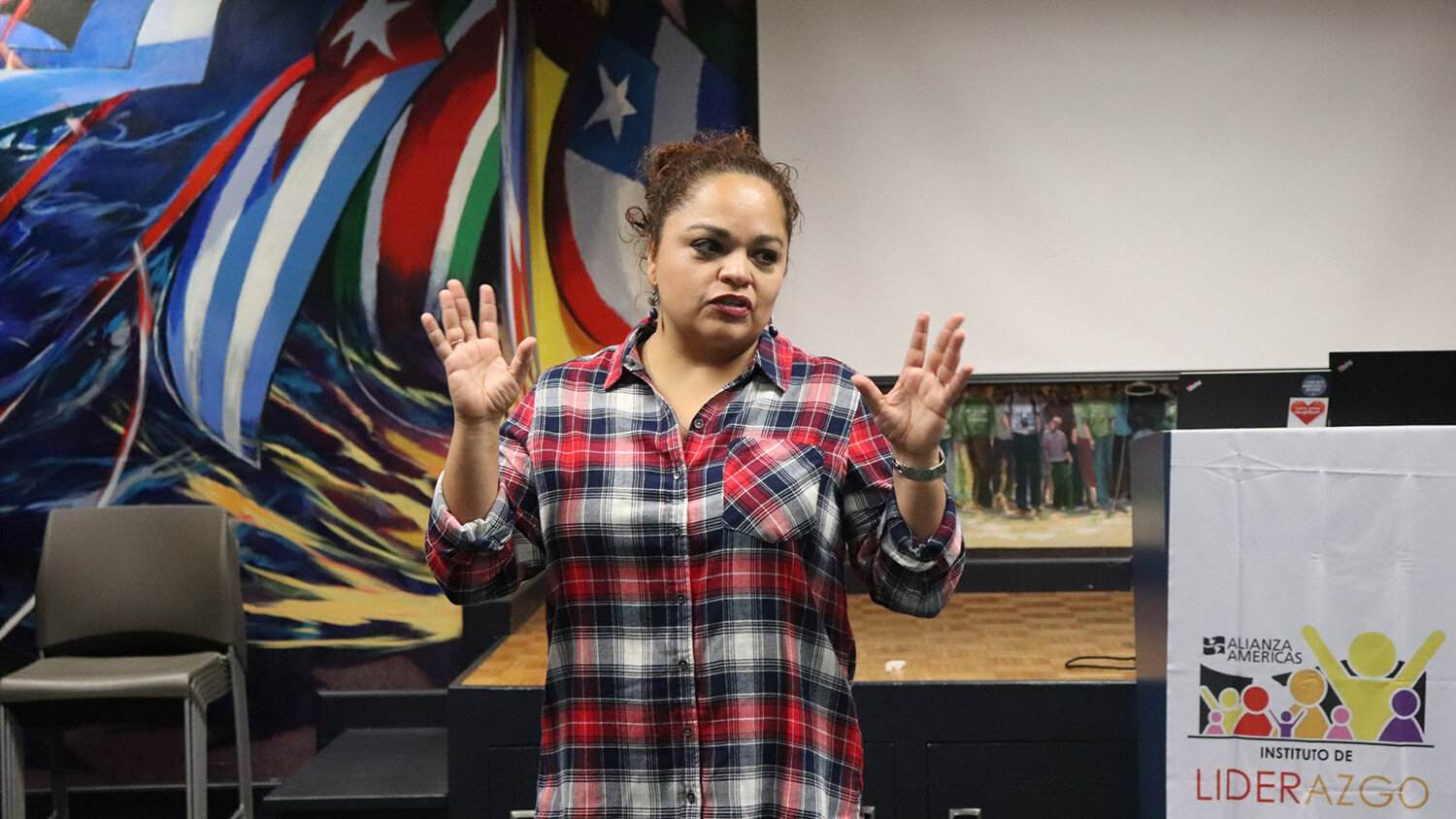Connecting the Dots
Internationally educated nurses are building a more stronger workforce.
Building a healthier workforce by removing barriers for internationally educated professionals
In 2014, after four years of nursing school and a rigorous internship, Andy Ponce Vasquez moved from Ecuador to Chicago to be with his wife and her family. After passing all his exams in his home country, he was eager to put his medical skills to work when he arrived–especially given the nursing shortage looming in the U.S.
Instead, Vasquez ended up stuck in a low-wage job stuffing envelopes in a mailroom. Thwarted by a complex credentials process and low English proficiency, “I became desperate and overwhelmed,” he said.
Scouring the internet one afternoon, Vasquez discovered the Chicago Bilingual Nursing Consortium (CBNC), an organization dedicated to helping bilingual nurses achieve licensure in Illinois.
“They came at the exact moment to relieve the tension that I was feeling, and gave me the opportunity to clearly understand the steps to take from the beginning to the end of this process,” said Vasquez.
With CBNC’s guidance, Vasquez finally passed his state licensure exam and became a registered nurse in Illinois in 2017.
Today, thanks to a new partnership between CBNC, Chicago City Colleges, and the Welcome Back Initiative, more highly skilled medical professionals just like Vasquez can access support than ever before. With funding from Walder Foundation, the Chicago Welcome Back Center officially launched last summer. Since then, the newly expanded program has helped 64 professionals—nearly double the consortium’s number of cases last year.
In Illinois, where more than 11,400 skilled immigrants with a degree in health services are working outside the medical field–despite an aging population and still-raging pandemic putting more strain than ever before on healthcare professionals–this news couldn’t have come soon enough.
“Because we are a small organization on our own, we’ve previously been limited in what we could provide in terms of educational resources and training,” said Fran LaMonica, CBNC’s recently retired executive director. “We knew there had to be a way we could collaborate more to meet the growing needs and expand our services to other healthcare professionals.”
In addition to getting highly-trained medical professionals into the hospitals and nursing homes where they are so desperately needed, the program also dramatically improves care for Chicago-area patients who are non-native English speakers.
“The intent is to contribute to the diversification of the U.S. health workforce so that it better serves an increasingly diverse population,” said Dr. José Ramón Fernández-Peña, who founded the San Francisco-based Welcome Back Initiative. With the launch of the Chicago Welcome Back Center, the national initiative now provides resources to twelve similar centers nationwide.
In Chicago, the unique partnership will combine CBNC’s local network and expertise with the national organization’s higher-powered technology and broader reach–including expanding the focus from nurses to include physicians, mental health professionals, speech pathologists, and more. Support from Chicago City Colleges will allow the group to create custom courses geared toward helping internationally trained medical professionals achieve Illinois licensure.
“In the past, if someone was just missing one course credential, we’d have to connect with various colleges around the city. Some would not allow entry into courses without taking the full program of courses,” said LaMonica. “Now, through our agreement with the City Colleges, internationally educated nurses could be enrolled in only the courses that are deficient.”
Even before the Chicago Welcome Back Center was formed, the CBNC had been working out of office space at the Arturo Velasquez Institute of Richard J. Daley College since 2018. Kicking their partnership up to the next level to launch the new Center was a natural next step.
“This center will help our international community to continue their profession of choice and follow their dreams,” said Janine Janosky, president of Richard J. Daley College.
Get more stories like this delivered to your inbox.
Sign up with your email address to receive news and updates.











